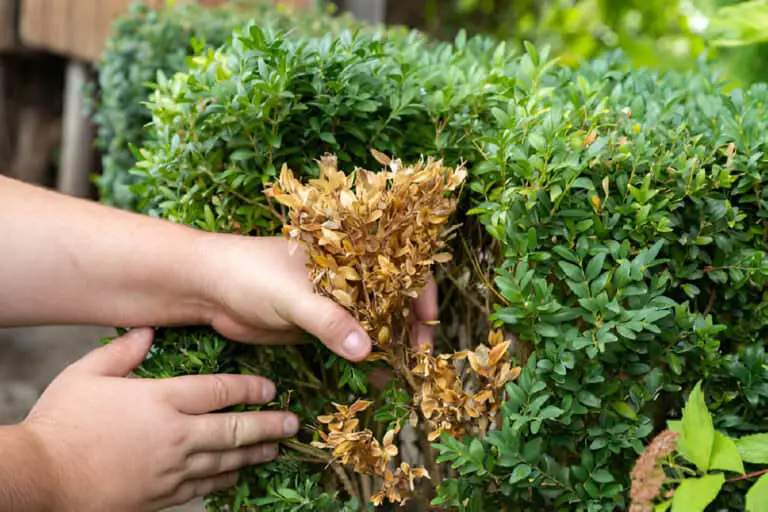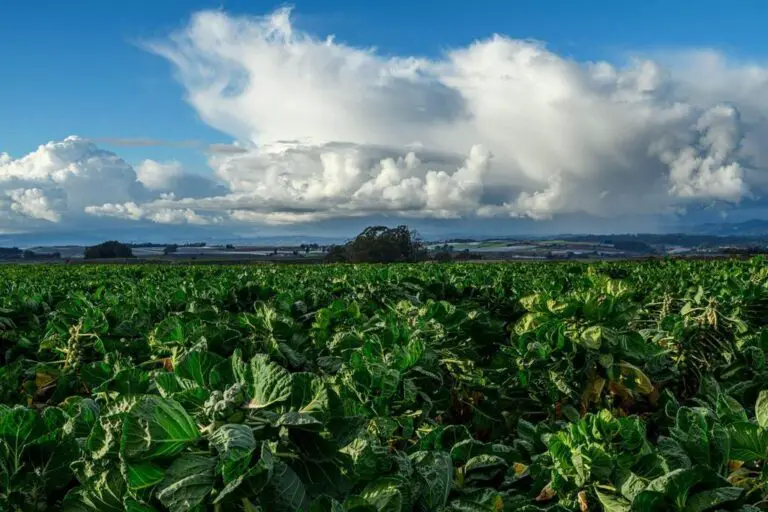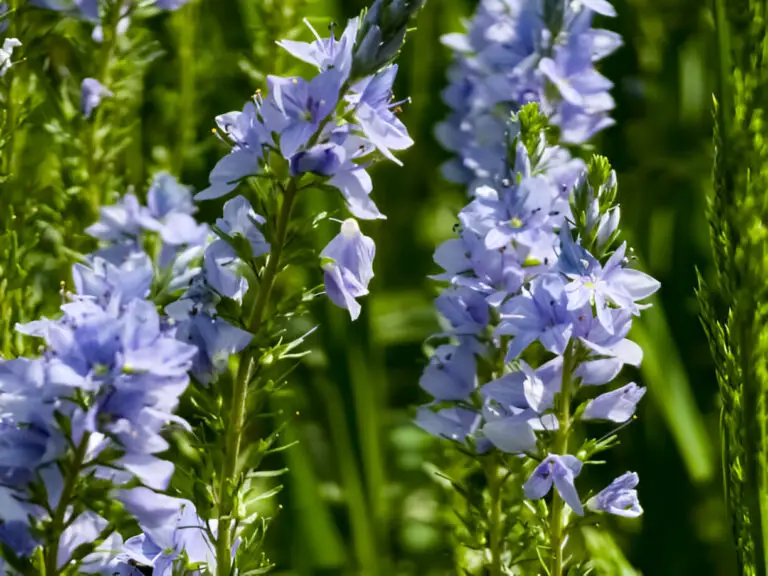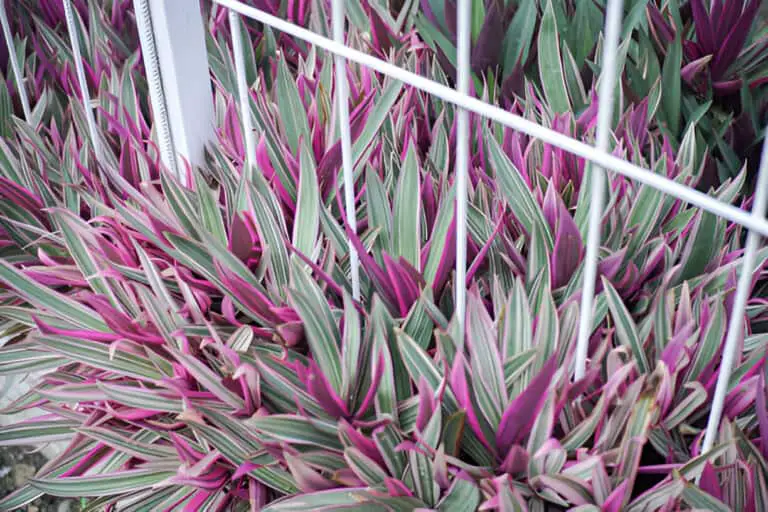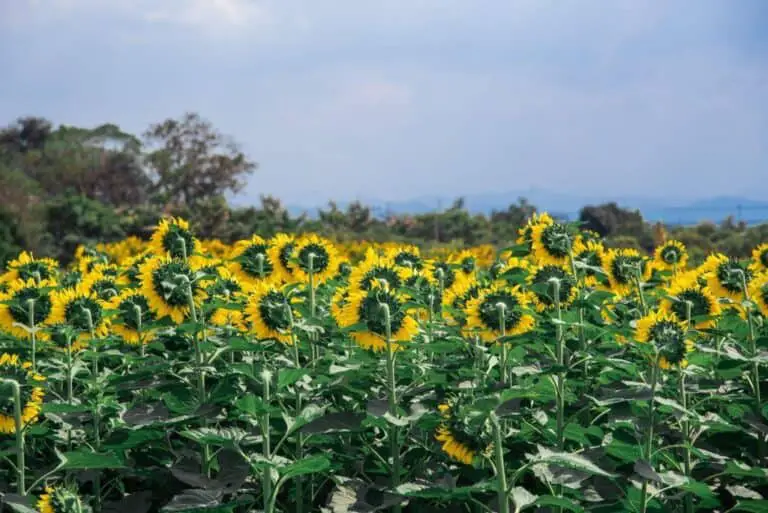Do Brussels Sprouts Need to Be Organic? Is It Healthier?
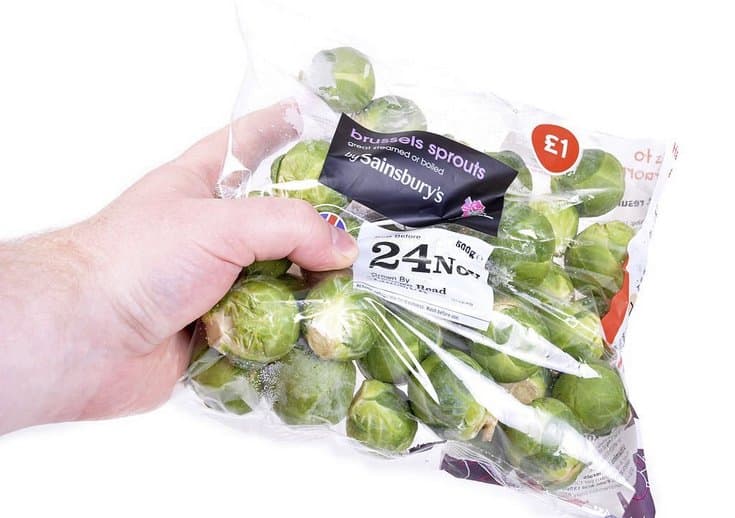
Are you a fan of those adorable, mini-cabbage-like vegetables known as Brussels sprouts? If so, you’ve probably pondered the question: Do Brussels sprouts need to be organic? And more importantly, is organic really healthier? These questions have sparked a lively debate among health-conscious individuals and food enthusiasts alike.
In a world where we’re increasingly mindful of what we put into our bodies, the choice between organic and conventionally grown produce has become a hot topic. Brussels sprouts, with their abundance of nutrients and unique flavor, have found themselves at the center of this discussion.
Join me as we delve into the world of Brussels sprouts and unravel the mystery surrounding their organic status. We’ll explore the differences between organic and conventional cultivation methods, the potential health benefits, and whether going organic is truly worth it.
So, grab a seat and get ready to discover the truth behind Brussels sprouts and their organic allure. It’s time to separate fact from fiction and make an informed decision about these nutritious little gems.
What Does Organic Mean?
When it comes to organic farming, the emphasis lies on sustainability and environmental stewardship. Organic farmers prioritize soil health by using techniques like crop rotation, cover cropping, and composting.
These practices help maintain soil fertility, improve water retention, and prevent erosion. By nurturing the soil in a natural and organic manner, farmers create a thriving ecosystem that supports the growth of healthy, nutrient-rich crops.
In addition to soil management, organic farmers prioritize the well-being of the plants and the surrounding environment. Rather than relying on synthetic pesticides and herbicides, organic farmers use alternative methods like biological pest control, crop diversity, and physical barriers to protect their crops.
These practices not only reduce chemical exposure but also foster biodiversity by providing habitats for beneficial insects, birds, and other wildlife.
Furthermore, organic farming prohibits the use of GMOs, ensuring that the crops remain in their natural state. Genetically modified organisms involve the manipulation of an organism’s DNA, often with the goal of enhancing certain traits. In organic farming, the focus is on preserving the integrity of the plant’s genetic makeup and maintaining the natural balance of the ecosystem.
What Makes Brussels Sprouts a Popular Choice for Organic Farming?
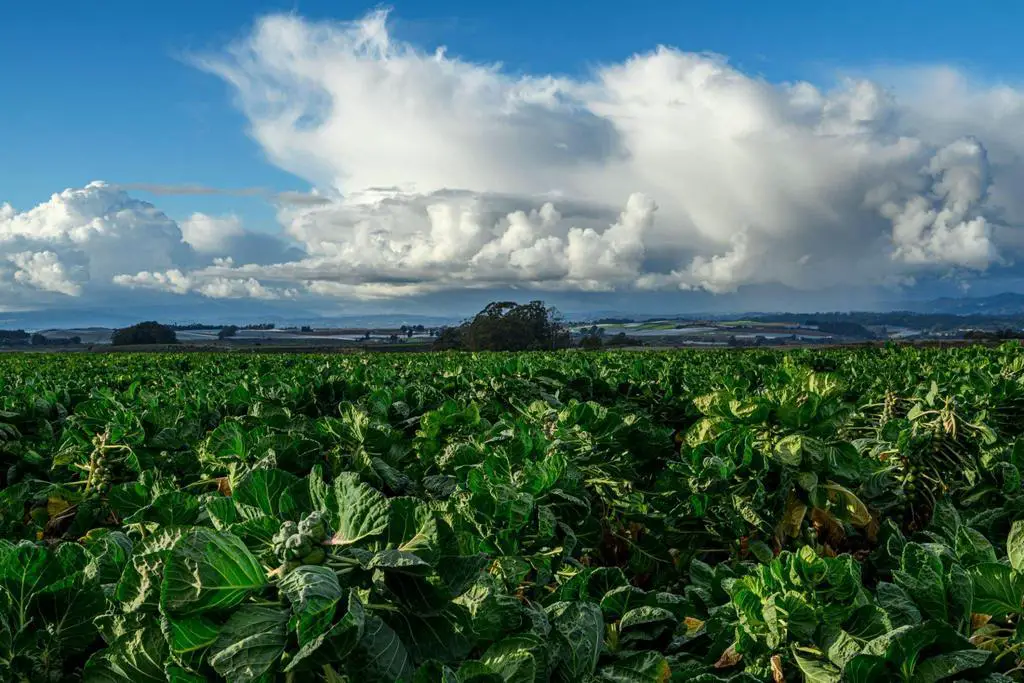
Brussels sprouts have emerged as a popular choice for organic farming due to several key factors. Firstly, their natural resilience to pests and diseases reduces the need for synthetic pesticides and fertilizers, aligning perfectly with the principles of organic farming.
Additionally, Brussels sprouts are known for their ability to thrive in cooler climates, making them suitable for cultivation in various regions. This adaptability not only provides farmers with a versatile crop but also reduces the need for energy-intensive temperature control systems commonly found in other crops.
Moreover, Brussels sprouts offer significant nutritional benefits, contributing to their popularity in organic farming. These compact green gems are rich in essential vitamins and minerals such as vitamin C, vitamin K, folate, and potassium. As consumers increasingly prioritize health-conscious food choices, the demand for nutrient-dense vegetables like Brussels sprouts has skyrocketed.
The cultivation of this cruciferous vegetable in organic systems ensures that consumers can enjoy its full potential, free from harmful residues of synthetic chemicals.
In line with the rising demand for organic produce, the table below highlights the growth of organic Brussels sprout farming in the United States between 2015 and 2021:
| Year | Organic Brussels Sprouts Farms (U.S.) |
| 2015 | 18 |
| 2016 | 23 |
| 2017 | 28 |
| 2018 | 32 |
| 2019 | 38 |
| 2020 | 44 |
| 2021 | 47 |
As the table illustrates, organic Brussels sprout farming has experienced consistent growth over the past five years, demonstrating its appeal and profitability. With their natural resilience, nutritional benefits, and increasing consumer demand, Brussels sprouts are undoubtedly a favored choice for organic farmers seeking sustainable and health-conscious agricultural practices.
Do Brussels Sprouts Need to Be Organic? Is It Healthier?
The choice of whether Brussels sprouts need to be organic ultimately depends on personal preferences and priorities. While conventional Brussels sprouts may still offer nutritional benefits, organic cultivation brings additional advantages that align with health and environmental concerns.
Organic Brussels sprouts are grown without the use of synthetic pesticides, herbicides, or fertilizers, reducing the risk of chemical residues in the final product. This appeals to individuals who prioritize minimizing exposure to potentially harmful substances in their diet.
Moreover, organic farming practices prioritize soil health and biodiversity, which can contribute to the overall nutritional quality of the crops. By focusing on natural methods like composting, crop rotation, and biological pest control, organic farmers promote the development of nutrient-rich soil and a balanced ecosystem.
As a result, organic Brussels sprouts have the potential to offer enhanced levels of vitamins, minerals, and antioxidants compared to their conventionally grown counterparts.
It’s important to note that the nutritional composition of Brussels sprouts itself remains relatively consistent,whether grown by conventional farming or organic farming.
Brussels sprouts are naturally packed with essential nutrients, including vitamin C, vitamin K, fiber, and antioxidants, regardless of the farming method. However, choosing organic Brussels sprouts can provide peace of mind for those who value sustainable farming practices, environmental protection, and minimizing exposure to synthetic chemicals.
Read: My Brussels Sprouts Are Opening Up? What Happened?
Challenges and Considerations in Organic Brussels Sprout Cultivation
While organic farming offers numerous benefits, it also presents unique challenges and considerations when cultivating Brussels sprouts. One of the primary challenges is pest and weed management. Without the use of synthetic pesticides, organic farmers rely on alternative strategies to control pests and weeds.
Organic pest management for Brussels sprouts may involve the use of natural predators, such as ladybugs or parasitic wasps, to control harmful insects. Additionally, physical barriers, crop rotation, and careful monitoring are employed to minimize pest damage. Weed control in organic Brussels sprout farming often involves manual labor, mulching weeds, or the use of cover crops to suppress weed growth.
Maintaining soil fertility is another critical consideration in organic Brussels sprouts cultivation. Organic farmers rely on compost, animal manure, and cover crops to enrich the soil with organic matter and nutrients. Proper crop rotation is also practiced to prevent nutrient depletion and manage pests and diseases.
Organic Pest and Weed Management Strategies for Brussels Sprouts
Organic pest and weed management strategies play a crucial role in the successful cultivation of Brussels sprouts. Here are some commonly employed methods:
- Biological control: Encouraging the presence of natural predators and beneficial insects in Brussels sprouts fields can help control pests organically. Ladybugs, lacewings, and parasitic wasps are examples of beneficial insects that prey on pests like aphids and caterpillars.
- Crop rotation: Rotating Brussels sprouts with different plant families can disrupt pest life cycles and reduce the risk of disease buildup in the soil. Rotation with non-related crops helps maintain soil health and fertility.
- Physical barriers: Using physical barriers, such as row covers or netting, can protect Brussels sprouts from pests like cabbage worms or flea beetles. These barriers create a barrier between the plants and the pests, preventing damage.
- Trap crops: Planting trap crops near Brussels sprouts can divert pests away from the main crop. For example, planting radishes or mustard greens as trap crops can attract pests like flea beetles, keeping them away from the Brussels sprouts.
- Companion planting: Certain companion plants for Brussels sprouts can help deter pests or attract beneficial insects to the Brussels sprouts. For instance, planting marigolds around Brussels sprouts can repel harmful nematodes and attract pollinators.
- Mulching: Applying organic mulch, such as straw or wood chips, around Brussels sprouts helps suppress weed growth and retain moisture in the soil. Mulching also provides insulation and protects the plant’s roots from temperature fluctuations.
- Hand weeding: Regularly pulling weeds by hand is an essential practice in organic Brussels sprout farming. Careful manual weeding ensures that weeds do not compete with the Brussels sprouts for nutrients and sunlight.
By employing these organic pest and weed management strategies, farmers can successfully grow Brussels sprouts while minimizing the use of synthetic pesticides and herbicides.
Soil Fertility and Nutrient Management in Organic Brussels Sprouts Farming
Organic Brussels sprouts farming places great emphasis on soil fertility and nutrient management. The health of the soil directly affects the quality and nutritional content of the vegetables. Organic farmers employ various practices to enhance soil fertility and ensure the availability of essential nutrients. These practices include:
- Composting: Organic farmers utilize compost, a mixture of organic materials, to enrich the soil. Compost improves soil structure, enhances water retention, and provides a slow release of nutrients, promoting optimal growth for Brussels sprouts.
- Cover cropping: Cover crops, such as legumes or grasses, are planted during fallow periods. These crops protect the soil from erosion, add organic matter when they are incorporated, and fix nitrogen, an important nutrient for Brussels sprouts.
- Crop rotation: Organic farmers practice crop rotation to prevent nutrient depletion and the buildup of pests and diseases. By rotating Brussels sprouts with different plant families, the soil can rejuvenate, reducing the risk of nutrient deficiencies.
How Can I Tell If Brussels Sprouts Are Organic?
When it comes to determining whether Brussels sprouts are organic, there are a few key indicators that can help you make an informed decision. Firstly, looking for the USDA Organic seal on the packaging is a reliable way to ensure that the Brussels sprouts have met the strict organic standards set by the United States Department of Agriculture. This seal guarantees that the sprouts were grown without the use of synthetic fertilizers, pesticides, or genetically modified organisms (GMOs).
Additionally, seeking out sprouts labeled “Certified Organic” by reputable third-party organizations, such as the Non-GMO Project, can provide further assurance of their organic status.
Furthermore, examining the appearance of Brussels sprouts can offer subtle hints about their organic nature. Organic sprouts tend to have a more natural, uneven appearance, with varying sizes and leaf colors. They may exhibit some imperfections, such as occasional browning or insect damage, as they are grown without the aid of chemical interventions.
On the other hand, conventionally grown sprouts are often more uniform in size, shape, and color, as they undergo rigorous treatment to maintain a pristine appearance.
Lastly, engaging in conversations with farmers or local producers at farmers’ markets can provide valuable insights into the farming practices employed. These direct interactions allow you to inquire about their cultivation methods and ask specific questions about pesticide usage and soil management. Many organic farmers take pride in their commitment to sustainable agriculture and will gladly share information about their practices, fostering a deeper connection between consumers and the food they consume.
Table: Comparison of Organic and Conventional Brussels Sprouts
| Organic Brussels Sprouts | Conventional Brussels Sprouts | |
| Use of Pesticides | No synthetic pesticides or fertilizers used | Synthetic pesticides and fertilizers may be used |
| GMOs | Not genetically modified | May contain genetically modified organisms |
| Appearance | Natural, uneven sizes and colors, occasional imperfections | Uniform sizes, shapes, and colors, generally blemish-free |
| Certification | USDA Organic seal, Certified Organic labels by third-party organizations | No specific certifications |
| Farming Practices | Sustainable and environmentally friendly | May rely on intensive farming practices |
| Price | May be slightly higher due to the cost of organic farming | Often more affordable |
Consumer Perception and Demand for Organic Brussels Sprouts
Consumer perception plays a crucial role in the demand for organic Brussels sprouts. Many individuals perceive organic food as a healthier and safer choice, free from synthetic chemicals. The growing interest in personal well-being and environmental sustainability has contributed to increased consumer demand for organic produce, including Brussels sprouts.
Consumers who prioritize organic options often value the following factors:
- Health and safety: Consumers choose organic Brussels sprouts to minimize exposure to synthetic pesticides and fertilizers, opting for produce that aligns with their health and safety concerns.
- Environmental consciousness: Choosing organic Brussels sprouts reflects a commitment to supporting sustainable agricultural practices, reducing chemical pollution, and promoting biodiversity.
- Quality and taste: The perception that organic Brussels sprouts are of higher quality, with better flavor and nutritional content, influences consumer preferences.
Read: Why Are There Different Colors of Brussels Sprouts?
Making an Informed Choice
When it comes to Brussels sprouts, the choice between organic and conventional ultimately comes down to personal preference, budget, and availability. If you have concerns about pesticide residues and prioritize supporting sustainable farming practices, organic Brussels sprouts are a great option for you. They are grown without synthetic chemicals, which can reduce your exposure to pesticide residues and support environmentally friendly farming methods.
However, it’s important to note that conventionally grown Brussels sprouts can still be a nutritious and healthy choice. Regulatory agencies set limits on pesticide residues to ensure that they are within safe levels for consumption. Washing and cooking conventionally grown Brussels sprouts can further reduce any potential residues.
If you’re on a budget or live in an area with limited access to organic produce, conventional Brussels sprouts can still be part of a balanced diet. The health benefits of consuming Brussels sprouts, such as their high vitamin and mineral content, are present regardless of whether they are organic or conventional.
To make an informed choice, you can consider the following factors:
- Personal Health Priorities: If you have specific health concerns or sensitivities to pesticides, opting for organic Brussels sprouts can provide peace of mind. However, if you have no known sensitivities and prioritize a balanced diet overall, conventionally grown Brussels sprouts can still be a healthy choice.
- Budget and Accessibility: Organic produce tends to be more expensive than conventionally grown options due to the additional labor and certifications involved in organic farming. Consider your budget and the availability of organic Brussels sprouts in your area when making your decision.
- Environmental Impact: If you’re passionate about supporting sustainable farming practices and minimizing environmental impact, choosing organic Brussels sprouts aligns with these values. Organic farming methods prioritize soil health, biodiversity, and conservation of natural resources.
FAQs
Are organic Brussels sprouts more nutritious?
While organic Brussels sprouts are grown without synthetic pesticides and fertilizers, there is limited evidence to suggest that they are significantly more nutritious than conventionally grown ones. Both organic and conventional Brussels sprouts are packed with essential vitamins, minerals, and dietary fiber, making them a healthy addition to your diet.
What pesticides are commonly used on conventionally grown Brussels sprouts?
Conventionally farmed Brussels sprouts are sprayed with several pesticides, including chlorpyrifos, dimethoate, and imidacloprid. Chlorpyrifos is the third most commonly used pesticide on Brussels sprouts in California. However, it is worth noting that the Environmental Working Group ranks Brussels sprouts among those vegetables with the least amount of pesticide residue. In addition, bugs do not like Brussels sprouts, so they are not sprayed as heavily as some other crops. If you are concerned about pesticide residues, it is recommended that you buy organic produce, including organic Brussels sprouts
Are there any health risks associated with conventionally grown Brussels sprouts?
When consumed as part of a balanced diet, conventionally grown Brussels sprouts pose no significant health risks. Regulatory agencies set limits on pesticide residues to ensure their safety. Proper washing and cooking techniques, such as rinsing under water and removing outer leaves, can further reduce any potential risks associated with conventionally grown produce.
Are organic Brussels sprouts free from all chemicals?
While organic Brussels sprouts are grown without synthetic pesticides and fertilizers, it’s important to note that organic farming does allow the use of certain natural pesticides and fertilizers. Organic standards prioritize the use of naturally derived inputs, but they do not guarantee that organic Brussels sprouts are completely free from all chemicals.
Are organic Brussels sprouts always more expensive?
Organic Brussels sprouts are often priced higher than conventionally grown ones. This price difference can be attributed to the additional labor, certification processes, and specific farming practices involved in organic agriculture. Availability and market demand can also impact the price.
Can conventionally grown Brussels sprouts be as healthy as organic ones?
Conventionally grown Brussels sprouts can be equally nutritious as organic ones. Both varieties contain essential nutrients, vitamins, and minerals. The primary difference lies in the farming methods and the use of synthetic chemicals in conventional farming. While organic Brussels sprouts offer the advantage of minimizing exposure to synthetic pesticides, conventionally grown Brussels sprouts that adhere to regulatory limits on pesticide residues can still be a healthy choice.

